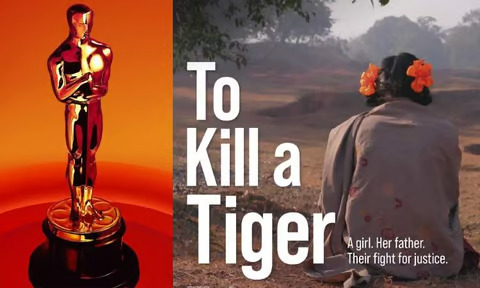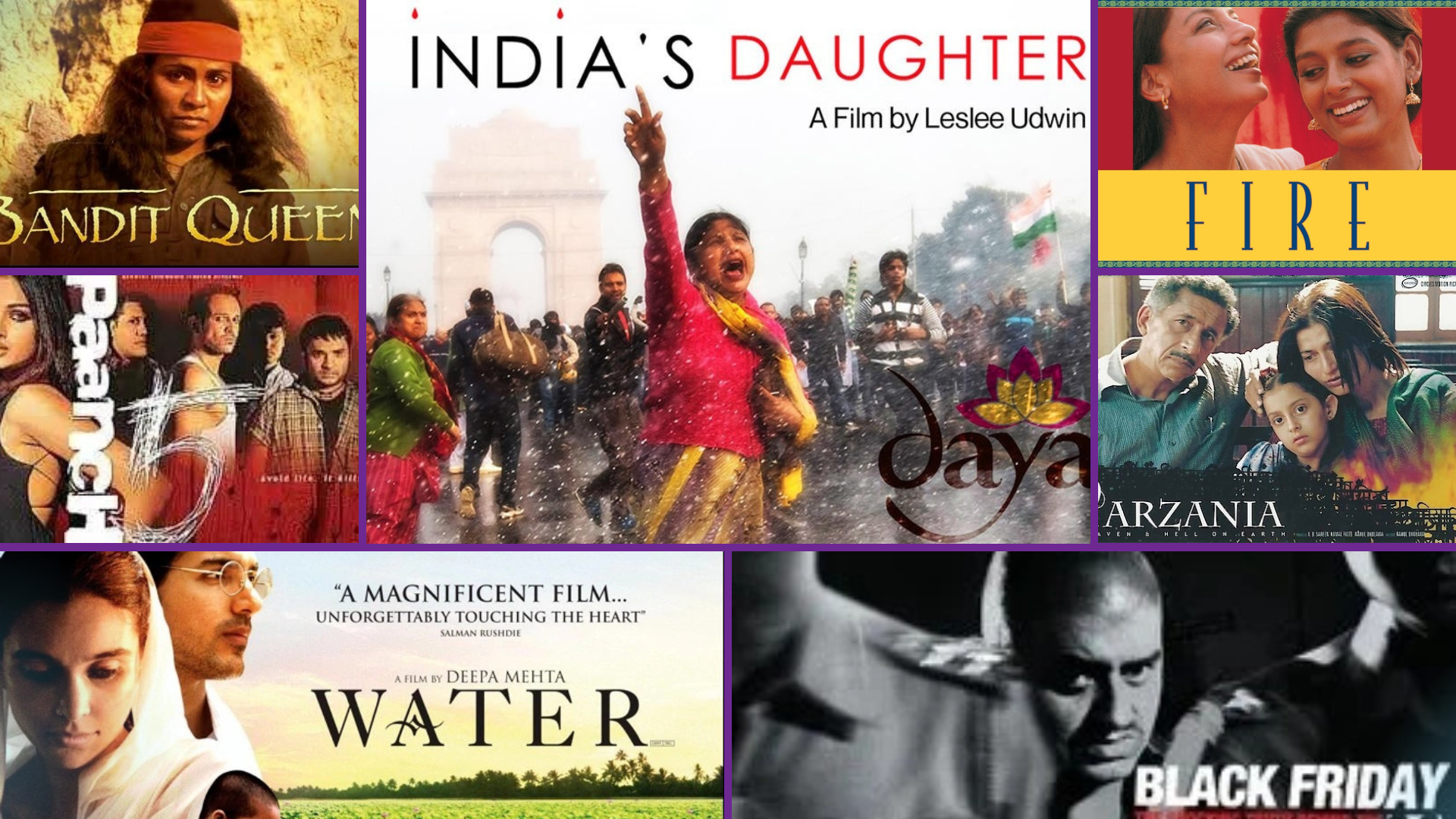Priyanka Chopra reveals real cause behind association with’ To Kill a Tiger’ Priyanka Chopra is an administrative producer of Oscars nominated Indian documentary To Kill a Tiger Priyanka Chopra revealed the real cause behind her association as an administrative producer with the Academy Awards- nominated Indian film To Kill a Tiger.

This film is directed by Nisha Pahuja, and the film is based on sexual assault survivor in India . Priyanka Chopra told People magazine that she feels close to discussions about sensitive issues. She added,” we say one- third of women in India have experienced sexual violence.” The Baywatch actress further shared that the film” speaks to not just survivors, but their supporters as well, men supporting women.”
Chopra said it’s inspiring to see a father fight his entire community, the justice system and the societal morality for his daughter’s rights. also, Chopra also replied to the film’s Oscar recognition, saying that it’s instigative to see that” movies from each over the world are being accepted.”

“ Subtitled pictures are winning Oscars in main classes. As an artist that started my work in India and had a major career there, I really believe in( being) at the front line of bringing cinema and filmmakers from different parts of the world into mainstream entertainment, into Hollywood,” she said.
Oscar- nominated documentary focuses on sexual abuse in India To Kill A Tiger’
Cronicles father’s hunt to achieve justice for his teenage daughter It’s frequently said that a daughter’s first hero is her father. In the Oscar- nominated documentary” To Kill a Tiger”( 2022), 13- year-old Kiran’s father Ranjit faces down sanctioned pressure and death dangers to seek justice after his daughter is gang raped after attending a marriage in her Indian village.

The film, directed by Nisha Pahuja, is the third India- related documentary in three years to be nominated for an Academy Award, following” All That Breathes”( 2022) in 2023 and” Writing with Fire”( 2021) in 2022.” The Elephant Whisperers”( 2022), directed by Kartiki Gonsalves, won last year in the stylish short documentary family. But Pahuja’s film is the first to deal with the pervasive issue of violence and sexual discourtesy toward women, generally embedded in traditional patriarchal culture, which frequently goes unreported in India, especially if the victims are poor and lower caste.

The problem is taking fresh attention in the wake of the alleged gang rape last week of a Brazilian- Spanish traveler who was camping with her hubby in the eastern state of Jharkhand. Indeed in Delhi, an standard of three rapes were reported every day in 2022, while crimes against women rose by 4 across India, according to the National Crime Records Bureau.
” To Kill a Tiger,” also set in Jharkhand by the National Film Board of Canada, winning the award for stylish Canadian film, and has since garnered 25 awards at other transnational film festivities. Netflix lately acquired global streaming rights for the documentary, and it’s hoped to do well in the Oscar awards on March 10, when its main competition will be” 20 Days in Mariupol,” directed by Mstyslav Chernov for theU.S. Public Broadcasting Service. Yet Pahuja said the film was made by accident.

Her former documentary point,” The World Before Her”( 2012), explored social pressures facing youthful Indian women, and also won multitudinous festival awards. As a follow- up, she arrived in India in 2017 planning to make a documentary on Indian machismo. She began the work in Jharkhand of the Srijan Foundation, known for work for women and children.
A colonist in pursuing gender justice, the foundation conducts programs involving men and boys. Ranjit was enrolled in one of these programs, but Pahuja didn’t meet him until latterly in 2017, when social workers visited the family after Kiran was assaulted and hovered with death if she reported the attack.( Ranjit and Kiran are aliases used in the documentary.)
Shocked to see his daughter stumbling home late at night, Ranjit reported the incident to the original police station and the three criminals, all from the village where he lived, were arrested. But Ranjit, a father of four, had to deal with village leaders who tried to force the family to drop the charges, as well as dangers to his own life. The documentary shows the social pressures braving Ranjit.

One woman suggests that Kiran should marry one of the rapers to restore peace in the village. Another scene shows a original council member saying that the rapers” are youthful and made a mistake. Do we cut their throats and toss them down?” Indeed Ranjit’s wife asks him,” Do you suppose we were wrong to involve the police?”
But Ranjit persisted in his cause for justice, driven by love for his child. Kiran also displayed unanticipated courage in the face of her trauma, adamant that her attackers should be penalized. After a 14- month trial, a judicial manager issued a corner judgment, condemning the three men to 25 years in prison under a 2012 law furnishing safeguards for children against sexual abuse.
” The victim’s father was a poor cultivator of the ethnical community,” said Public Prosecutor Ashok Kumar Rai, who represented Kiran during the 2017- 18 trial.” He’d to battle with the villagers who alleged that he reach a concession and drop the case. But he didn’t succumb. He felt that if his trial for justice could empower other victims in the future, he was willing to suffer the sacrifice. The trial was conducted in camera( in private) and the teenager faced the trial bravely.”
Pahuja said that handling such a sensitive documentary subject was delicate.” picturing Kiran was a huge ethical dilemma for me,” she said.” I have pictured sensitive content before, but I have noway pictured a child sexual- assault survivor. It took us close to four months before the family truly opened up to us. There were numerous moments when I was not sure if that was ever going to be. But we stuck around. And it came from a place of compassion and no judgment.

I suppose all of that combined helped us to start building trust with the family.” Pahuja added” We started picturing her in abstract ways, but it felt strange. I did not want her to feel that she had something to hide so decided that we would mask her identity in post-production. Everything we tried, animation; blurring; giving her a new face. felt wrong and unethical.
Important of the film is about the brand of rape and how opprobrious it’s perceived to be for the victim. And the idea of hiding her felt like we were immortalizing the very prejudice we were critiquing.” The film crew also had to deal with opposition from the village community– including original people entering Ranjit’s home and hanging the family.”
I felt a great sense of fear for the crew and the family,” said Pahuja.” But further than anything, I felt a sense of shame because I had disturbed that existed in the village where everyone depended on each other for their survival.” As the court proceedings continued, picturing became more grueling .” We were constantly checking in with the family to insure that they did not feel pressured to fight the case in court because of us or that their behavior were not motivated by the presence of our camera.”
Pahuja said her most memorable day came when the final cut of the documentary was shown to the family on the base that Kiran would decide how it should be released. To everyone’s surprise, Kiran decided to come forward and reveal herself, explaining she was extremely proud of her 13- year-old self for standing up for what was right, Pahuja said.”

She felt that by showing her face she’d encourage other survivors to come forward,” the director added. Kiran is now a 21- year-old council student who lately took the police entrance examination. ” Getting the film out into the world was an inconceivable travel,” Pahuja said, adding that she hopes the tenacity shown by the father and daughter will inspire others to seek justice.
The film’s title refers to a comment made to Ranjit during his struggle for justice, when he was told” You can not kill a tiger by yourself.” Ranjit refers to the comment in the film when the court verdict is announced.” I said I would kill the tiger,” he says,” and I did.” Those words will silence when this father attends the Academy Awards event on March 10.





